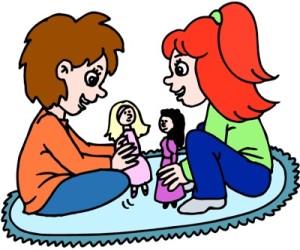Teaching Social Skills to Preschoolers
Teaching social skills to young children assists in their development to become well rounded adults. Social skills can help children express their needs and emotions as well as the way they interact better with their peers.
With the right social tools children are able to build meaningful friendships that are based on communication and understanding.
Remember, social skills are in fact learned behaviors. The primary place children are socialized is in the family. Many children pick up social skills intuitively, some need to be made aware, and others need much instruction and practice.
There are many skills children need to acquire in order to properly function in a society. Consider beginning with the following:
Perspectives
Being able to to understand a social situation from another person's perspective.
Impulse Control
Being able to control initial impulses (thoughts, desires) and not acting on them.
Delayed Gratification
Showing patience. Being able to delay gratification of needs and desires.
Conflict Resolution

Being able to solve an interpersonal problem with a peer without resorting to verbal or physical aggression.
During my interview with Dr. Miri Arie, child psychologist who specializes in children's social skills, I discussed the importance of developing social skills in young children before they enter grade 1.
Conversation skills are an essential part of social development. This page includes hand-on tips for teaching children how to deal with conflicts, feelings of frustration and general awareness of others.
Since social skills are a learned behavior I gathered my favorite social skills games and social skills activities you can play with your child.

New! Comments
Have your say about what you just read! Leave me a comment in the box below.